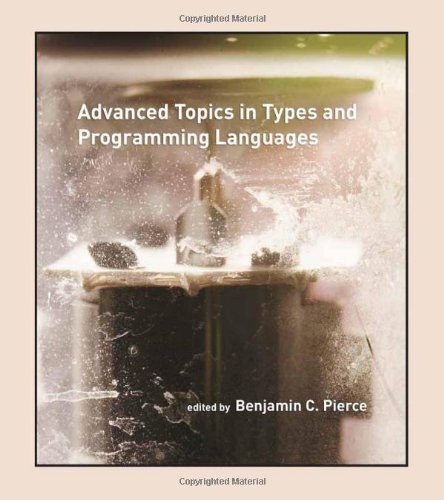Types and Programming Languages download
Par narcisse tina le lundi, avril 10 2017, 04:11 - Lien permanent
Types and Programming Languages by Benjamin C. Pierce


Types and Programming Languages ebook
Types and Programming Languages Benjamin C. Pierce ebook
ISBN: 0262162091, 9780262162098
Publisher: MIT
Page: 645
Format: pdf
I've been reading Pierce's Types and Programming Languages. Union types are more orthogonal with respect to product types. So I am currently studying the language of "serious" language researchers in order to write a paper about Cat, and the book "Types and Programming Languages" by Benjamin Pierce has turned out to be a huge boon! The Church-Turing Thesis; An Answer to Hilbert's Entscheidungsproblem; Notes. Types and Programming Languages, Benjamin C. It is not possible to interact with a database with these types of coding languages but you can interact with a server. Got says: February 28, 2011 at 1:51 am. I've become interested in the interactions between Parametric Polymorphism and runtime efficiency. His papers on definitional interpreters, syntactic control of interference, practical intersection types, and Algol-like programming languages are widely cited. But that doesn't even matter – programming languages (even C) specify that their int type be binary or at least behave as such – so x&1 will ALWAYS work. Types and Programming Languages. The immediate temptation is to compare PFPL to Benjamin Pierce's seminal Types and Programming Languages. I seem to have found a good idea where sum types originated and the reason why we don't need them in a programming language. In an implementation, it is an area of memory that stores the attributes of a variable. Booleans; Church Numerals; Notes. No special software is required on your server to make this language function properly. Whilst these are similar to the algebraic data types found in languages like Haskell, they are also more powerful since Whiley employs a structural type system. The lecture covered background on type systems in programming languages, what they are used for and how they might be tricky. Descriptor -> the collection of the attributes of at variable.